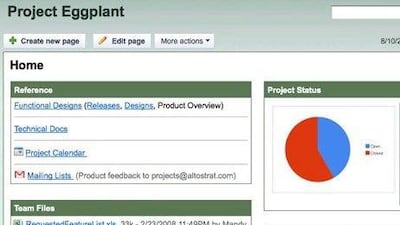"The Cloud" sounds like a distant, mystical land, but in reality it refers to scores of climate-controlled warehouses around the world where data is stored. Cloud services, ones which allow you to store data remotely rather than on a particular device, are a particular boon for travellers. You no longer have to worry about taking documents, photos, contacts or any other data with you. They will be available anywhere in the world. Just beware of the ridiculous data roaming fee some providers charge.
Google Apps
Since it launched Gmail in 2004, Google has been at the vanguard of cloud services. With the addition of more and more products, a Google account has become a place to store not only emails, but music, photographs, search history, documents and contacts as well. These services can be quite complex to make the most of and feel a bit fragmented, but odds are you're probably using some kind of Google service already.
You can find out more about Google accounts at www.google.com/accounts
Apple iCloud
Apple does not have such a good track record with cloud services. iCloud, launched in October 2011, was intended to cleanse the bad taste left by its previous incarnation called MobileMe. It is a revelation. It synchronises the many fragments of your online existence including music, books, photos, email, contacts and calendar. The best bit is that it is automatic and unnoticed giving the uncanny impression of magic. iCloud is available for iPhone, iPad, and iPod touch, Mac and PC.
Find out more at www.apple.com/icloud/get-started/
Dropbox
Dropbox began in 2008 and gained a lot of users and praise because it is easy to use and it works on a wide range of operating systems and devices. The service isn't as comprehensive as Google or as seamless as Apple, but its strength is its simplicity both practically and conceptually. It is like having a USB stick on the web and is perfect for keeping a copy of your passport and other important documents.
You can sign up for a free Dropbox with 2GB of space at www.dropbox.com

